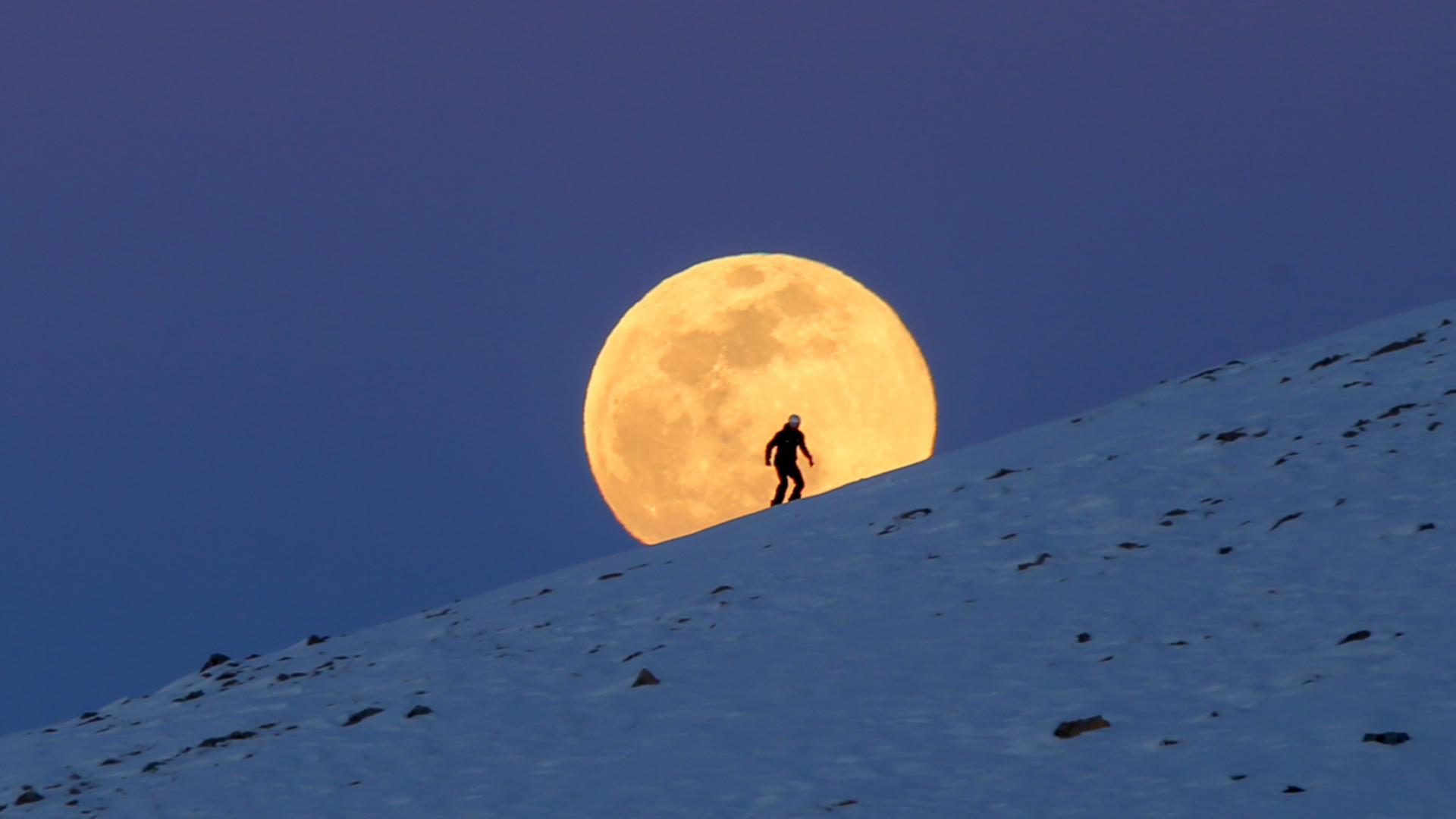Space Historian Sees Cyborgs in Our Future
Albuquerque, N.M. - Fifty years after the dawn of the space age,hundreds of people have flown into space. A dozen of those left their bootmarks on the Moon's surface, and several nations now are planning to sendastronauts back to the Moon and then beyond. So you would think the expansionof humanity ever deeper into the Cosmos is a sure bet.
But thenotion that human explorers are destined to become an interstellar species isfar from a sure thing as far as Roger Launius is concerned.
Morelikely, humans, and the machines they use to explore space, are going to evolvetogether in ways that are hard to predict at this early stage in the opening ofthe space frontier, said Launius, an eminent space historian and chair for theDivision of Space History at the Smithsonian Institution's National Air andSpace Museum in Washington.
Multi-PlanetSpecies
Speaking toa crowd of space professionals at the Space Technology and ApplicationsInternational Forum (STAIF 2007) in Albuquerque Feb. 12, Launius said humans aredestined to become a multi-planetary species, but that word may take on a wholenew meaning as time evolves.
Given thatthere will be the first child born on the Moon, as well as Mars, will thatperson be a Homo sapien, he asked. Could thedifferences of gravity, radiation exposure mean those children would be unable to return to Earth?
"I think that'sproblematic," Launius said, and in some respects might this be an evolutionaryroad not unlike that taken by amphibian creatures that departed their waterworld to become land creatures.
Breaking space news, the latest updates on rocket launches, skywatching events and more!
"There isthe possibility of the evolution of human species into something different,"Launius said. He and fellow space researcher, Howard McCurdy of The AmericanUniversity in Washington, have authored a book on thesubject to be published later this year.
Electronics/digitalrevolution
One areawhere all spaceflight visionaries of the past failed to make meaningfulpredictions was in the rapidly advancing capabilities of robotics andelectronics, Launius said.
Forexample, when noted science fiction/fact writer, Arthur C. Clarke, envisioned geosynchronoustelecommunications satellites in 1945, he believed that they would requirehumans working on board a manned space station because he thought it would benecessary to change the vacuum tubes.
"Some ofthe most forward-thinking spaceflight advocates ... utterly failed to anticipatethe electronics/digital revolution then just beginning," the space historiannoted.
"With therapid advance of electronics in the 1960s, however, some began to question therole of humans in space exploration. It is much less expensive and risky to send robotexplorers than to go ourselves. This debate reached saliency early on andbecame an important part of the space policy debate by the latter twentiethcentury," Launius pointed out. Presently, there is a significant merger ofhumans and machines into something different and enhanced, he said.
Self-inducedtransformations
Launiussaid one possibility is the evolution of the human species into somethingdifferent via self-induced transformations: Create an Earth-like environmentfor astronauts to live in ... or change the astronauts in ways that they will bemore capable of surviving in new and different regions of space.
For thelatter, that smacks of a CYBernetic ORGanism, or Cyborg, whereby somephysiological processes are assisted or controlled by mechanical or electronicdevices.
"We mayalready be Cyborgs," Launius pointed out, looking out into an audience filledwith people wearing glasses, hearing aids and sporting hip and kneereplacements--not to mention those clinging to their hand-held mobile phonesand other communication devices.
Projectinghundreds of years into the future, Launius said he believed that it is likelyhumans will evolve in ways that cannot be fathomed today, into a form ofspecies perhaps tagged Homo sapiens Astro. "Will our movement to places likethe Moon and Mars hasten this evolutionary process? ... I don't know the answer,"he said.
In closing,Launius suggested that the old paradigm for human space exploration--ultimately becoming an interstellarspecies--"is outmoded and ready for replacement."
- IMAGE GALLERY: Robt Explorers
- Microbot Madness: Hopping Toward Planetary Exploration
- Panel: NASA Needs Both Robotic and Human Missions, But Equity Missing
- Special Report: The New Space Race

Leonard David is an award-winning space journalist who has been reporting on space activities for more than 50 years. Currently writing as Space.com's Space Insider Columnist among his other projects, Leonard has authored numerous books on space exploration, Mars missions and more, with his latest being "Moon Rush: The New Space Race" published in 2019 by National Geographic. He also wrote "Mars: Our Future on the Red Planet" released in 2016 by National Geographic. Leonard has served as a correspondent for SpaceNews, Scientific American and Aerospace America for the AIAA. He has received many awards, including the first Ordway Award for Sustained Excellence in Spaceflight History in 2015 at the AAS Wernher von Braun Memorial Symposium. You can find out Leonard's latest project at his website and on Twitter.
